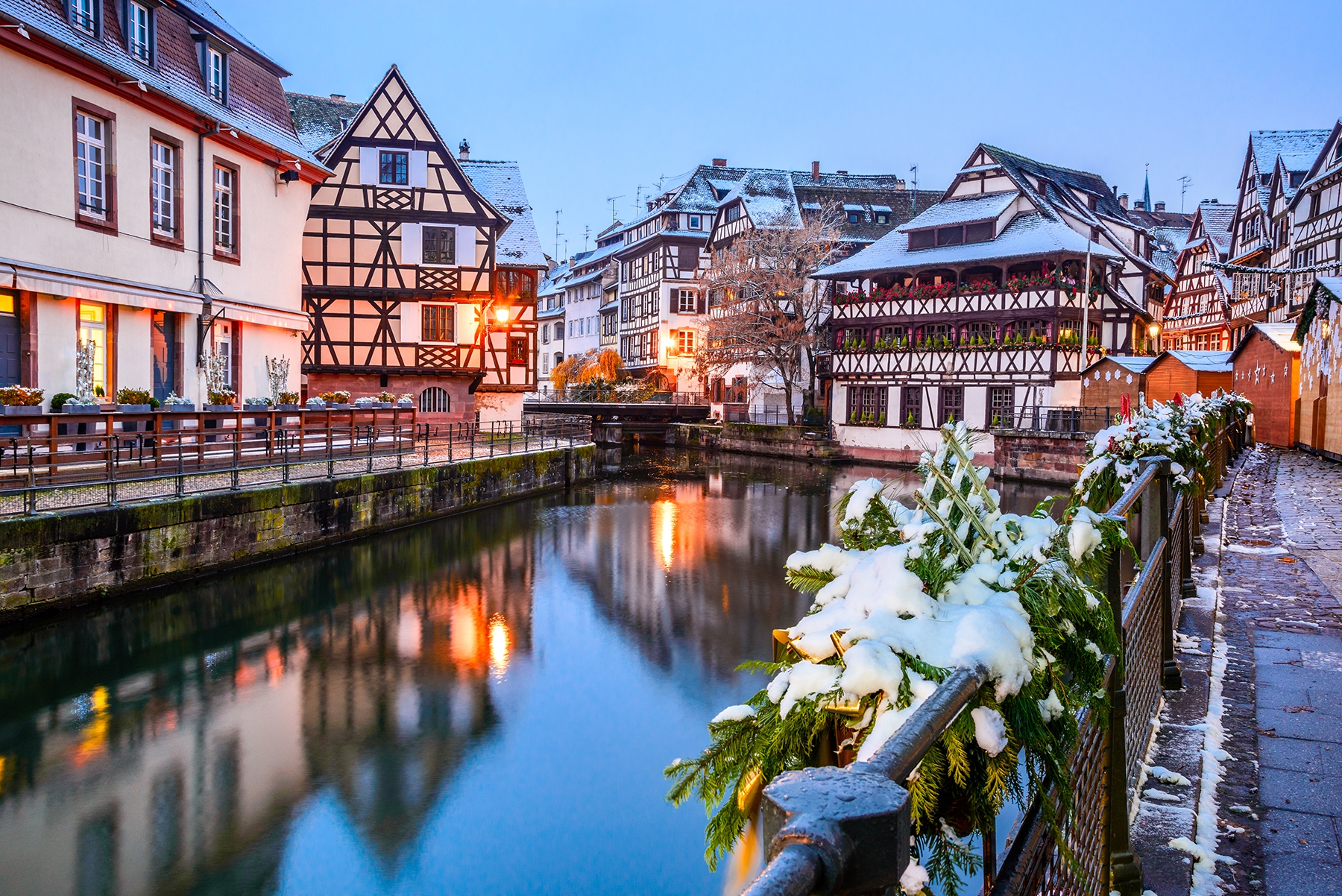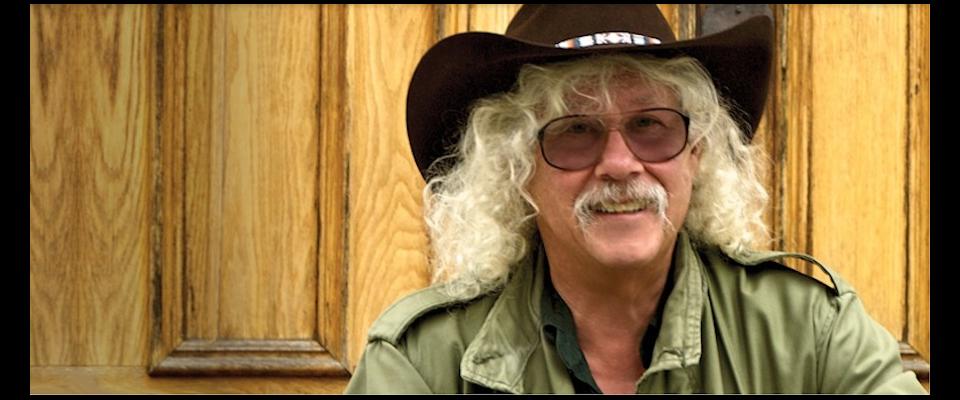It’s been 50 years since that memorable Thanksgiving Day in 1965 when Arlo Guthrie was busted for littering in Great Barrington, Massachusetts, an event that seemed trivial at the time but eventually led to his being rejected for military service by his draft board—to his great relief—because of that “criminal record.”
The whole episode was satirized in his celebrated talking blues song, “Alice’s Restaurant Massacree,” which, in its original recorded version, lasts 18 minutes and 34 seconds—the same length, he likes to point out, as the famous gap in Richard Nixon’s Watergate tapes.
Despite its length—unprecedented in those days—the song became a huge hit and still survives as a cult classic. Many radio stations throughout the United States make playing “Alice’s Restaurant” an annual Thanksgiving Day tradition. But Guthrie rarely plays it on tour.
“I’ve played it thousands of times in the past, but since the early ’80s I’ve limited its performance to one tour every decade,” he says. “There are a lot of reasons. Things change, it’s hard on my voice, it’s very time consuming, and most of my usual repeat offender fans really didn’t want to sit through it every time we came to town.”
But he will perform it on April 17 in Berkeley, the latest stop on his Alice’s Restaurant Massacree 50th Anniversary Tour, at Cal Performances’ Zellerbach Hall. And he says he’s looking forward to it.
“One of the benefits of not doing it every night is that when I get to do it, I get to enjoy it myself.”
He’ll also play some of his other big hits, including “The Motorcycle Song” (“I don’t want a pickle/I just want to ride on my motor-cicle”), “Coming into Los Angeles” (“Coming into Los Angeles/Bringing in a couple of keys/Don’t touch my bags if you please/Mister Customs Man”) and the late Steve Goodman’s paean to passenger trains, “City Of New Orleans.”
He finally got to ride the City of New Orleans himself in 2005, when he and his family took it on a trip across the country to raise money for musicians who were financially devastated by Hurricane Katrina.
“It was freaking awesome,” he says.
Guthrie is the son of the great singer/songwriter Woody Guthrie, and he’ll also play some of his father’s songs, including “This Land Is Your Land.”
Meier Kahane “was a very nice man when he began teaching me,” Guthrie says. “Afterward, he went over the edge. Coincidence? You can draw your own conclusions.”
His Wikipedia entry says he learned his father’s style from Ramblin’ Jack Elliott, but Guthrie says that’s a bit of a stretch.
“I’m just a link in a long line of people who have learned at the feet of great teachers and mentors, and both Jack and Pete [Seeger] were those, as well as great friends,” he says. “But I really don’t do an imitation of my father’s style musically, although I could for academic purposes, I guess.”
Wikipedia also says he’s morphed from an anti-war liberal who performed at George McGovern rallies in 1972 into a libertarian who supported Ron Paul for the Republican nomination in 2008, but Guthrie says that’s not quite the way it is, either.
“I will always like Ron Paul, even if I don’t agree with him, because I think he’s an honest guy,” he says. “He says what he thinks and lets the chips fall where they may. He seems to be the kind of guy who’s not selling himself, but an idea. If his ideas are a little different from my own, that’s fine. At least you know where he stands. I like anyone of any party—or no party—who is being informative without preaching or selling anything.
“Likewise, I’m not selling anything. I believe in being kind, generous, and compassionate to the extent you are able. To give without having to get something in return. And mostly I believe in love—because I have stood within the light of love, and I know beyond a shadow of a doubt that that is all there actually is. Always was, always is, always will be. The rest is illusion—fun at times, but illusion nonetheless.”
Guthrie’s father was Protestant, but his mother was Jewish—his maternal grandmother was the great Yiddish poet Aliza Greenblatt—and Guthrie was raised as an Orthodox Jew. The rabbi who taught him his Hebrew lessons for his bar mitzvah was none other than Meier Kahane, the controversial—some would say notorious—founder of the Jewish Defense League, the precursor of most modern Jewish militant and extreme right-wing political groups.
“He was a very nice man when he began teaching me,” Guthrie says. “Afterward, he went over the edge. Coincidence? You can draw your own conclusions.”

Guthrie converted to Catholicism in 1977 but came to embrace interfaith beliefs in later years. In 1991 he bought the former church that had been Alice and Ray Brock’s house during the events described in “Alice’s Restaurant” and converted it into the Guthrie Center, an interfaith meeting place that provides free lunches in the community and support for families living with HIV/AIDS and other life-threatening illnesses, including Huntington’s disease, the hereditary affliction that killed his father.
Guthrie does six or seven fundraising shows there every year, as well as annual events such as the Walk-A-Thon to Cure Huntington’s Disease and the “Thanksgiving Dinner That Can’t Be Beat” for families, friends, doctors and scientists who live and work with Huntington’s disease.
“I treat everyone as normal,” he says. “I don’t care if you’re healthy or sick, or LGBT, what shade of skin you’ve got, what political party you are with, what temple or church you go to, whether you got too little or too much, or whether you’re entitled or disenfranchised. Everyone is like family. Some are like kids, others like brothers or sisters, still others like parents or grandparents. To me we are all family. Everyone is normal, unless you’re not.”
And finally, does he still prefer motorcycles to pickles?
“Don’t let the lyrics fool you; I like ’em both,” he says. “I love Bubbies Pickles—hands down, the best commercially available pickles. I also ride a 2001 Indian Motorcycle (a cross between a Spirit and a Scout). It’s a special centennial edition bike made in Springfield, Massachusetts.”


















